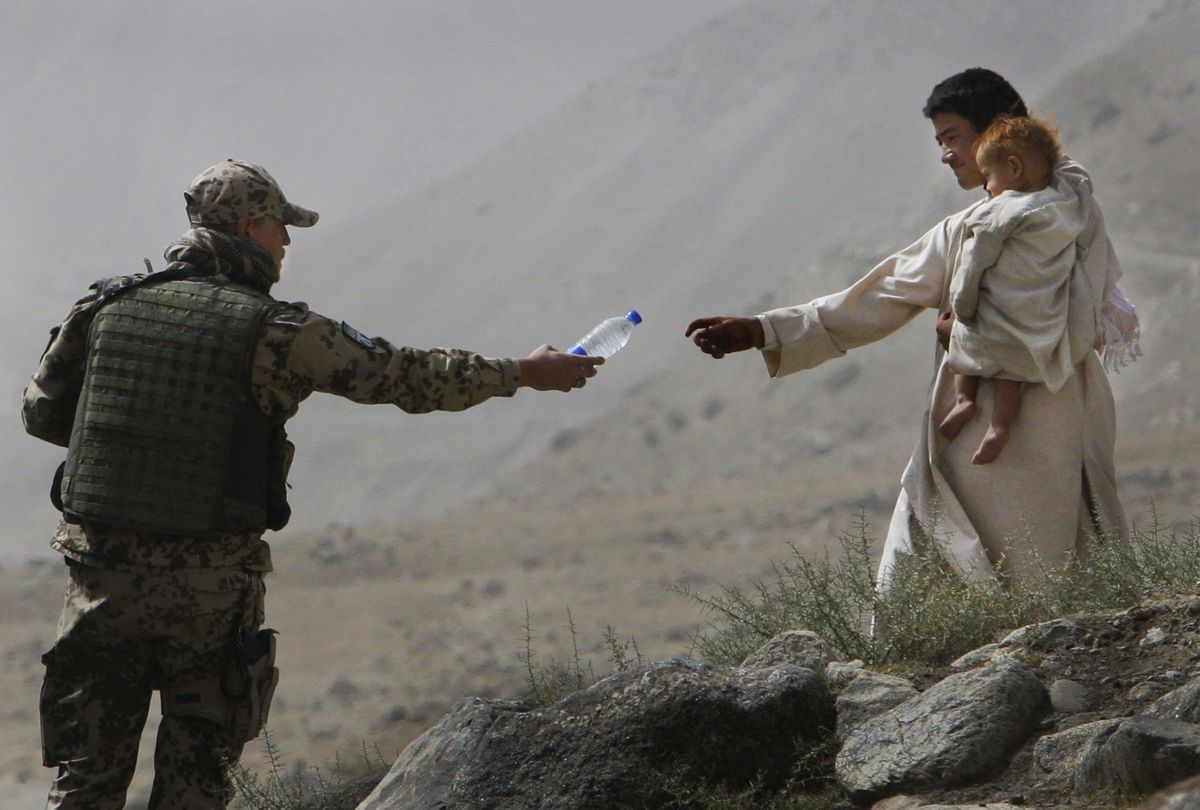General asks for more troops in Afghanistan
But ‘surge’ isn’t the answer, he says

WASHINGTON – The new top U.S. commander in Afghanistan said Wednesday that more American troops are urgently required to combat a worsening insurgency, but he stated emphatically that no Iraq-style “surge” of forces will end the conflict there.
“Afghanistan is not Iraq,” said Gen. David D. McKiernan, who led ground forces during the 2003 Iraq invasion and took over four months ago as head of the NATO-led coalition in Afghanistan.
Speaking in Washington, McKiernan described Afghanistan as “a far more complex environment than I ever found in Iraq.” The country’s mountainous terrain and rural population, poverty and illiteracy, its 400 major tribal networks and history of civil war – all make for unique challenges, he said.
“The word I don’t use for Afghanistan is ‘surge,’ ” McKiernan stressed, saying that what is required instead is a “sustained commitment” to a counterinsurgency effort that could last many more years and would ultimately require a political, not military, solution.
The strategic differences or similarities between Iraq and Afghanistan have emerged as an issue in the presidential campaign. In last week’s debate between the candidates, for example, Republican nominee Sen. John McCain said that “the same strategy that (Democratic nominee Sen. Barack Obama) condemned in Iraq, that’s going to have to be employed in Afghanistan.”
McCain said he is confident that Gen. David Petraeus, the former top U.S. commander in Iraq who will soon oversee Afghanistan and the broader region as the head of U.S. Central Command, will succeed in applying that strategy.
Another facet of the Iraq strategy that McKiernan doubts can be duplicated in Afghanistan is the U.S. military’s programs to recruit tribes to oppose insurgents. That effort, begun in 2006 in Iraq’s Anbar province, led a loose coalition of tribes to turn against the Sunni insurgent group al-Qaeda in Iraq and side with the U.S. military. It was expanded in early 2007 in a U.S. military effort to hire local tribesmen and former insurgents to serve as armed guards in their neighborhoods. In Iraq, nearly 100,000 of the volunteers, primarily Sunnis, are now on the job.
Tribal engagement in Afghanistan is also vital, McKiernan said, but it must be carried out through the Afghan government and not by the U.S. military.
“I don’t want the military to be engaging the tribes,” he said. Given Afghanistan’s complicated system of rival tribes and ethnic groups and the recent history of civil war, allying with the wrong tribe risks rekindling internecine conflict, he said. “It wouldn’t take much to go back to a civil war.”
Overall, McKiernan offered a sober view of Afghanistan, saying the violence is more intense than he had anticipated, particularly in the east and south. The toll in U.S. troops killed has risen to more than 130 this year, exceeding the total of 117 last year and reaching a new annual high since the war began in 2001.
Attacks into Afghanistan from Pakistan have escalated, but the coordination of U.S., Afghan and Pakistani forces in the border region remains weak. “We are just scratching the surface, if you will” in coordinating actions along the porous border, he said.
An influx of foreign fighters across the border is bolstering the Taliban insurgency and has shown a “significant increase from what we saw this time last year,” he said, pointing to intelligence that picked up fighters speaking Uzbek, Chechen, Arabic and other languages.
“We are in a very tough fight,” he said. “The idea that it might get worse before it gets better is certainly a possibility.”
A sizable international force will be required in Afghanistan for years until a “tipping point” is reached that allows the Afghan army and police to take responsibility for security, he said. An effort is under way to double the size of the Afghan army, now at about 67,000 troops, McKiernan said.